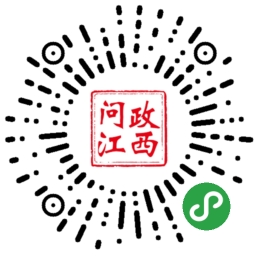Xiplomacy: How China helps empower women from Asia to Africa

Street banners for the Global Leaders' Meeting on Women are pictured in Beijing, capital of China, on Oct. 11, 2025. (Xinhua/Ju Huanzong)
China has joined hands with countries worldwide to empower women. From Asia to Africa, inspiring stories of shared efforts toward building a better world have accelerated the global advancement of the cause of women.
BEIJING, Oct. 12 (Xinhua) -- "Women are creators of material and spiritual wealth, and represent an important force driving social development and progress," Chinese President Xi Jinping once said.
Xi made the observation while chairing the Global Leaders' Meeting on Gender Equality and Women's Empowerment at the UN Headquarters in New York on Sept. 27, 2015, where he outlined China's commitment to advancing women's development and international cooperation.
Over the past decade, China has made significant strides in promoting the all-round development of women. Countless Chinese women are excelling in different domains, contributing their strength and wisdom to global peace and development, as well as to the better protection of women and children.
At the same time, China has joined hands with countries worldwide to empower women. From Asia to Africa, inspiring stories of shared efforts toward building a better world have accelerated the global advancement of the cause of women.
SAFEGUARDING HER WELL-BEING
In late September, 14-year-old Alifa Chin from Bangladesh visited China for the third time. She toured universities and exchanged ideas with her Chinese peers, gathering inspiration and energy to pursue her dreams.
When Chin was born in 2010, her mother suffered a difficult delivery due to a severe heart problem. At that time, the Chinese naval hospital ship Peace Ark was in Bangladesh as part of a multiple-country mission to provide free medical services to local people. Upon learning of the emergency, Chinese doctors aboard the ship rushed to the local hospital to perform a cesarean section on her mother. Both mother and daughter were saved.
The child's father, Anwar Hossen, named his daughter "Chin," meaning "China" in Bengali.
In 2017, Chin met Dr. Sheng Ruifang, a Chinese female doctor who had performed the surgery. As they embraced warmly, the young girl called out "Chinese mother" in English. From that moment, the dream of becoming a doctor took root. Dr. Sheng encouraged her, saying, "I am willing to share all my experience with you."

Alifa Chin reads a reply letter from Chinese President Xi Jinping in Dhaka, Bangladesh, on May 29, 2023. (Xinhua)
In 2023, Chin wrote a letter to Xi, sharing her special connection with China and her dream. The president responded, encouraging her to study hard to make her dream come true, give back to her family, contribute to society and serve her country.
Chin framed Xi's letter, and displayed it on her desk. "I want to tell dear Grandpa Xi that I have always remembered your advice and am studying hard to achieve my dreams," she said. "My 'Chinese mother' gave me both life and inspiration, and I hope to follow her example by using my abilities to help and save others."
On a global scale, China's initiatives demonstrate its commitment to women's welfare. It has helped developing countries implement 100 "health projects for women and children" and 100 "happy campus projects," providing educational support to disadvantaged girls.
Irina Bokova, former director-general of UNESCO, spoke highly of the Prize for Girls' and Women's Education, jointly established by China and UNESCO in 2015. The award has supported 20 projects across 19 countries, raising global awareness about the importance of education for women's well-being and empowerment.
HELPING HER SHINE IN LIFE
Tahiya Bauso Massawe, a female cattle keeper from Tanzania, has benefited greatly from China's Juncao technology. At first, she was skeptical about this new type of forage introduced by Chinese experts.
"It looks like sugarcane. Would the cattle actually eat it?" She wondered. Yet the cows love it, and the milk production nearly doubled.
Rising income has allowed Massawe to buy new equipment and a vehicle, and hired 16 employees -- half of them women. She encouraged other women to grow Juncao as well, helping many earn their income for the first time and enabling them to support their families and children's education.
For Massawe, Juncao symbolizes equality, hope and opportunity. She said that this technology brought by Chinese experts has gradually improved their lives and transformed the role of local women.

Chinese Juncao expert Lin Hui explains to trainees at the China-Rwanda Agriculture Technology Demonstration Center in Huye District, Rwanda, on July 17, 2025. (Photo by Huang Wanqing/Xinhua)
Xi has emphasized on multiple international occasions the vital role of women's development in achieving common progress. "Development cannot be achieved without women, and the benefits it brings must be shared by all," he said at the 2015 UN meeting.
Today, the Juncao technology has provided employment opportunities for women in 106 countries worldwide. The Bamboo as a Substitute for Plastic Initiative, jointly launched by China and the International Bamboo and Rattan Organization, has improved the lives of women in many African countries. Additionally, Luban Workshop, a Chinese vocational training program, has trained nearly 6,000 female students.
For Gertrude Mongella, secretary-general of the Fourth World Conference on Women held in Beijing in 1995, in some developing countries, women continue to lag behind men in many fields due to a lack of funding, knowledge and skills.
In a recent interview with Xinhua, she expressed her hope for China to continue sharing its experiences and strengthening cooperation with more countries, including African nations, to promote the continuous development of global women's affairs.
GREATER HER EMPOWERMENT IN DEVELOPING COUNTRIES
In late September, over 40 female officials from Pakistan and the Central African Republic visited China to participate in capacity-building workshops organized by the newly established Global Exchange and Cooperation Center for Digital Empowerment of Women.
In cities and towns like Beijing, Shanghai, Hangzhou and Yiwu, they studied China's grassroots governance, researched cases related to women's entrepreneurship, digital villages and cross-border e-commerce. The visit helped them gain firsthand insight into how China leverages digital technologies to empower women, boosting both women's self-development and their social contribution.
To deepen cooperation in capacity-building for women in developing countries, China has initiated over 100 training projects focused on women and children in developing countries since 2018, training nearly 4,000 talents in the field of women's empowerment.
Additionally, China has established a global training base for women's development cooperation and exchange, designing tailored empowerment programs for developing countries. Collaborative training and exchange centers have been set up in partnership with 15 countries. Leveraging the Global Development and South-South Cooperation Fund, China has also implemented women-focused projects in more than 20 countries, with total funding exceeding 40 million U.S. dollars.

Women take a poultry farming training class after the launch ceremony of a poultry farming training program in Menoufia Governorate, Egypt, on Aug. 11, 2025. (Xinhua/Sui Xiankai)
For Bokova, the former UNESCO head, one of China's most impressive recent achievements is how Chinese women are "riding the wave" of the digital economy.
"We know all too well that this is the economy of the future," Bokova observed. "If we want to support women's empowerment, we should equip women with digital skills so they can participate flexibly and fully in the growing digital economy. That is exactly what China is doing today."
Monica Monteiro, chairperson of the Brazilian Chapter of BRICS Women's Business Alliance, said that while women in developing countries still face certain obstacles, digitalization and the knowledge economy are creating new opportunities and opening new pathways for women's development.
China has achieved remarkable success in promoting women's employment and entrepreneurship in the digital technology sector, providing valuable references and examples for Global South countries, she said.
来源:人民网
编辑:熊睿
审核:刘毅 甘晶莹
监制:郑颖





























